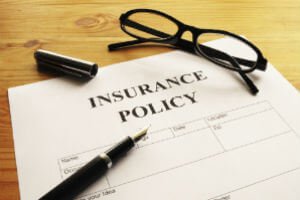 Pennsylvania’s auto insurance policies differ from most other states and can significantly affect your claim depending on the coverage you have chosen.
Pennsylvania’s auto insurance policies differ from most other states and can significantly affect your claim depending on the coverage you have chosen.
It is important that you have an understanding of the state’s insurance laws and requirements in the event that you are involved in a serious car accident. Our experienced attorneys can help make sure you receive the compensation you deserve based on your insurance policy.
Minimum Auto Insurance Requirements
In Pennsylvania, you are required to meet certain minimum insurance requirements to own and operate a motor vehicle.
The minimum insurance requirements include:
- $5,000 in medical benefits coverage (which will pay for your medical bills regardless of who was at fault for the accident)
- $15,000 per third party for bodily injuries
- $30,000 per accident for bodily injuries
- $5,000 per occurrence for property damage
Aside from these costs, the state also accepts all-purpose policies that contain a minimum of $35,000 total coverage.
However, it may be in your best interest to carry a higher rate of insurance coverage rather than the state’s accepted minimum amounts. If you are in an auto accident in which the other party holds you liable for the damages, the costs might exceed the limits of your policy.
If this were to happen, you may be required to personally compensate the difference.
Uninsured/Underinsured Motorist Coverage in Pennsylvania
In some cases, the at-fault driver involved in a car accident may be uninsured or does not have a plan that covers the total damage you incurred.
Uninsured or underinsured motorist coverage (UIM) is an optional feature that can be added to your insurance policy to provide protection from this scenario.
However, UIM coverage imposes a limit on when you can be compensated and how much you can receive:
- In accidents involving a hit-and-run driver, some UIM coverage will only apply if your vehicle was actually struck by the other. Being forced off the road by a driver who leaves the accident scene is not sufficient enough for UIM insurance to compensate you.
- If you acquire a workplace injury or illness and collect workers’ compensation benefits or other disability payments, your UIM payments will be reduced.
- If you receive payments for medical bills from your insurance provider through medical payments coverage, the compensation you are entitled under UIM will be reduced by the amount of those payments.
- If you or a relative is injured by an uninsured driver while you are in another person’s vehicle, the UIM of the other car’s owner is the primary coverage, while your own UIM becomes secondary. You can only collect from your own UIM coverage the amount of your damages that is not covered by that car owner’s UIM policy.
You are not required to obtain UIM coverage in Pennsylvania. It is only reserved as a precaution for those who wish to have protection against uninsured or underinsured drivers.
PIP Coverage in Pennsylvania
Pennsylvania is one of the few states that follows a no-fault system regarding financial responsibility for injuries caused by car accidents.
No-fault states require a driver to depend on the personal injury protection (PIP) coverage in his or her own insurance policy.
PIP coverage initially provides compensation for medical bills and other financial losses regardless of who was at fault for the accident.
Pennsylvania is a No-Fault Choice State
Pennsylvania is also one of only three states that has a “choice no-fault system,” which allows drivers to choose between “full tort” and “limited tort” coverage.
Limited Tort
Drivers who choose the limited tort option usually save on their monthly premiums, but also waive their right to recover certain damages, such as compensation for pain and suffering.
This will significantly lower the compensation in your claim and may prevent you from receiving crucial medical treatment and financial support.
The exception is when your injuries meet the “serious injury threshold” requirement defined by Pennsylvania law.
A serious injury would require a severe impairment beyond soft tissue damage, which can include injuries like head wounds. The injury would require permanent dysfunction of a body part and severe disfigurement.
Full Tort
Full tort coverage, however, gives you unlimited options after a car accident at the cost of high regular premiums.
This means you can file a personal injury lawsuit against the at-fault driver and seek damages for pain and suffering and other financial losses.
No-fault rules only applies to personal injury claims. The at-fault driver is still financially liable for any property damage you may have suffered from a car accident.
Legal Help for Car Accident Victims
It is important that all drivers in Pennsylvania understand the state’s auto insurance laws so you know what compensation you are entitled if you are injured in an auto accident.
The Harrisburg car accident attorneys at Schmidt Kramer can review your claim and determine if your insurance policy enables you to recover damages. If your options are limited, we can explore alternative means of seeking compensation.
Our initial consultation is free, and all legal and investigative work committed on your behalf is provided on a contingency fee basis. You only pay us if we recover fair damages for your claim.
Call (717) 888-8888 or complete a Free Case Evaluation form to get started today.

